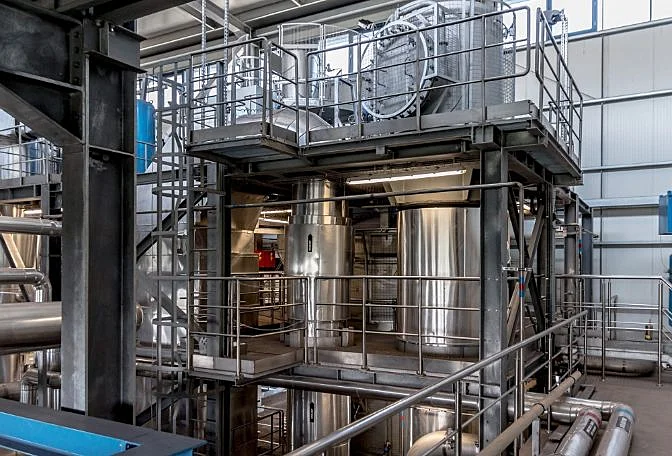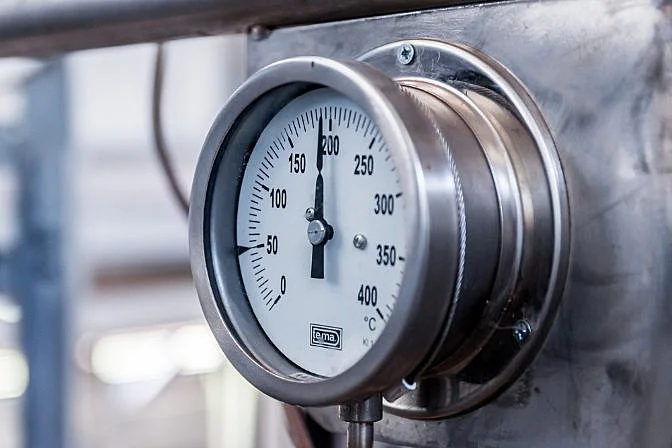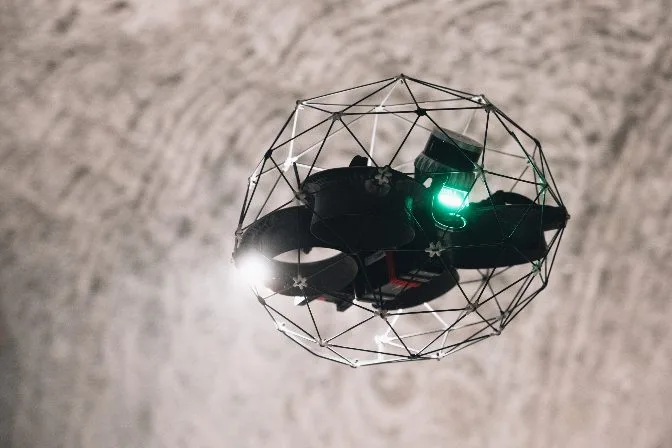Boiler Inspections: A Complete Guide
Boiler inspections are essential for industries that rely on industrial boilers to operate efficiently and safely. Discover how these inspections are carried out and the advantages of using drones in the process. Boilers are vital components in many industrial processes, operating under high pressure and extreme temperature fluctuations. These conditions can lead to wear and tear over time, making regular inspections a critical part of maintenance routines. Without proper inspection, small flaws can go unnoticed and eventually escalate into serious issues, potentially leading to catastrophic failures such as explosions, which can endanger workers and cause significant damage. Regular boiler inspections help identify and address potential problems before they become critical, ensuring the continued safe operation of the equipment and minimizing downtime. This guide covers the basics of what a boiler is, what it does, and the industries that use them. It also explains the inspection process, the role of boiler inspectors, and the benefits of using drones for inspections. To fully appreciate the importance of boiler inspections, it’s helpful to first understand what a boiler is and how it functions. Let's start with the basics. A boiler is a closed vessel designed to heat water or produce steam. This steam is then used for various purposes, including power generation, heating, and industrial processes. Boilers typically work by burning fuel—such as coal, oil, or gas—to generate heat, which is then transferred to water inside the boiler. As the water heats up, it turns into steam, which can be used to drive turbines, provide heat, or support other operations. Steam from large boilers serves multiple functions across different industries: Inspectors play a crucial role in maintaining boiler integrity and preventing dangerous failures. Industrial boilers are designed to transfer heat efficiently from combustion to water, producing steam at high pressure. The design allows for increased boiling points through pressurization, similar to how a pressure cooker works. Boilers can use various fuels, including coal, natural gas, oil, and biomass, depending on the type of boiler and the industry it serves. There are several types of boilers, each suited for different applications: Boilers are widely used in sectors such as power generation, oil and gas, chemicals, and steel. They are also essential in industries like pharmaceuticals, textiles, and food processing. These systems require regular checks to ensure safety and efficiency, making boiler inspections an important part of maintenance protocols. Given the high-pressure and high-temperature environment in which boilers operate, regular inspections are necessary to prevent failures and ensure long-term performance. Inspections focus on both internal and external components, checking for signs of wear, corrosion, leaks, or structural issues that could compromise safety or efficiency. While annual inspections are standard, some organizations recommend additional checks to improve safety and extend the life of the boiler. Boiler inspections are typically performed by certified professionals who have specialized training in boiler systems and safety standards. Many companies prefer to outsource these tasks to experts rather than maintain in-house inspection teams due to the complexity involved. Boiler inspections are governed by strict regulations to ensure safety and compliance. Organizations like ASME and API set the standards for boiler installation, maintenance, and inspection. Formal inspection bodies verify that all procedures are followed correctly, ensuring that inspections meet the required legal and safety standards. During an inspection, both internal and external parts of the boiler are visually examined for signs of damage or wear. This includes checking the nameplate, safety valves, piping, and control systems. Internal inspections can be challenging, often requiring scaffolding and careful access to all areas of the boiler. Using drones instead of manual inspections offers several key benefits, particularly in terms of safety, cost, and efficiency. However, not all drones are suitable for boiler inspections. Specialized models like Flyability’s Elios series are designed to navigate tight spaces and collect high-quality data without risking human safety. Here are five key benefits of using drones for boiler inspections: Drones eliminate the need for personnel to enter confined or hazardous spaces, significantly reducing the risk of accidents during inspections. Using drones can reduce inspection costs by up to 90% by eliminating the need for scaffolding and speeding up the process. Drones can reach hard-to-access areas within a boiler, providing detailed visual data that might be missed during manual inspections. Drones equipped with advanced sensors can capture high-resolution images and even create 3D maps, improving the accuracy of inspections. More frequent inspections enabled by drones can lead to better maintenance, reducing emissions and contributing to sustainability goals. Watch this video to see a boiler inspection conducted with the Elios 2: For more information on how drones are transforming boiler inspections, explore these case studies: Boiler Tube And Heat Exchange Tube Heat Exchange Tube,Boiler Tube,A210 Boiler Tube Hydrogrand Steel Pipe Co.,ltd , https://www.hydrograndtube.comBoiler Inspections: A Comprehensive Guide

Understanding Boilers: What They Are and Why They Matter
What Is a Boiler?
The Purpose of a Boiler
How Do Industrial Boilers Work?
Types of Boilers
Industries That Rely on Boilers
What Is Checked During a Boiler Inspection?

Who Conducts Boiler Inspections?
Regulatory Standards for Boiler Inspections
What Is Checked During a Boiler Inspection?
Five Advantages of Using Drones for Boiler Inspections
 Elios 3 conducting a visual inspection flight
Elios 3 conducting a visual inspection flight1. Enhanced Safety
2. Cost Savings
3. Improved Access
4. Better Data Quality
5. Environmental Benefits